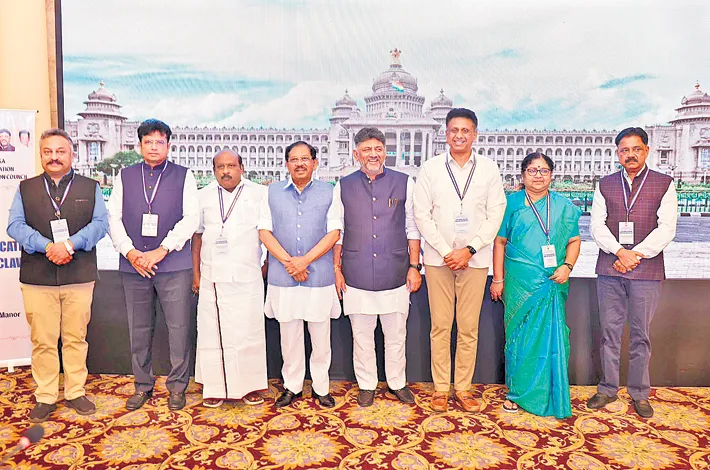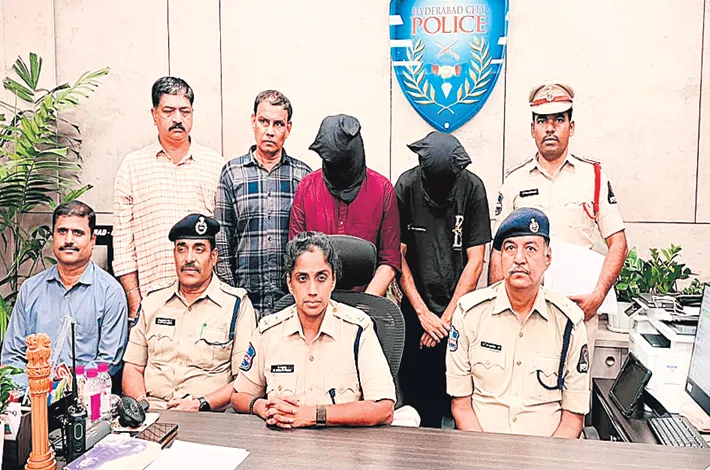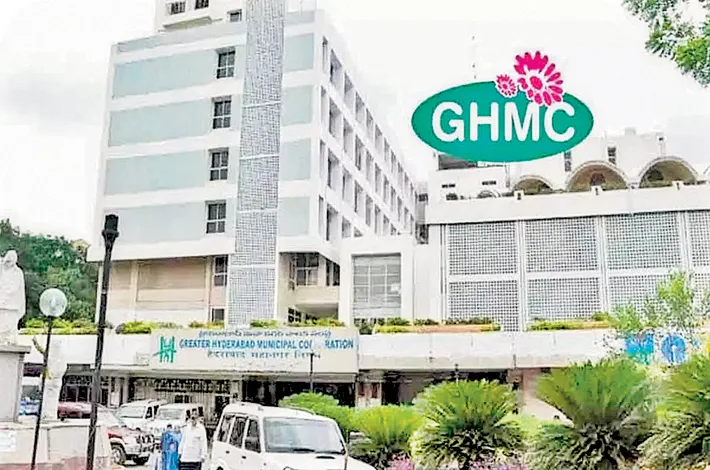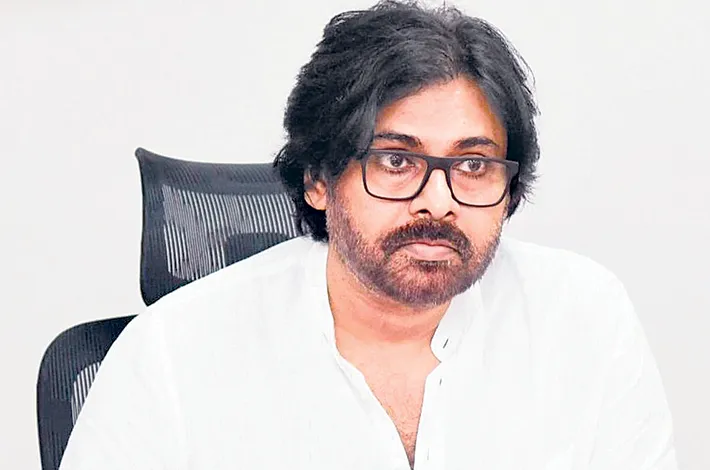‘UGC Regulations are an assault on federalism’
07-02-2025 12:13:02 AM

Karnataka, Tamil Nadu, Kerala, Telangana, Jharkhand, and Himachal Pradesh—closed ranks to challenge the Centre’s move
metro india news I hyderabad
Telangana’s IT & Industries Minister, Duddilla Sridhar Babu, has taken a firm stand against the draft UGC Regulations 2025, which seek to clip the wings of state governments in appointing university vice-chancellors. Representing the Telangana government in place of Chief Minister Revanth Reddy, Sridhar Babu participated in a crucial meeting in Bengaluru, where education ministers and representatives from six (non-BJP-ruled) states—Karnataka, Tamil Nadu, Kerala, Telangana, Jharkhand, and Himachal Pradesh—closed ranks to challenge the Centre’s move.
At the meeting, Sridhar Babu pulled no punches, slamming the central government’s attempt to tighten its grip on higher education. “For years, states have had the final say in appointing vice-chancellors, and now the Centre wants to call the shots. Telangana alone spends nearly Rs 4,000 crore annually on higher education, setting up new universities, fostering research and innovation, and ensuring quality education. What gives the Centre the right to meddle in our affairs?” he asked.
The minister tore into the proposal that would allow industry leaders, bureaucrats, and external individuals to be appointed as vice-chancellors, calling it a recipe for disaster. He also took issue with the requirement that universities must have at least 3,000 students to qualify for grading and central incentives, arguing that such a rule would tilt the scales in favour of private universities and deemed universities, leaving state institutions in the lurch.
Sridhar Babu didn’t stop there. He lambasted the proposal to introduce entrance exams for undergraduate programs like BA, B.Com, and B.Sc., branding it a barrier that would slam the door on students from economically weaker backgrounds.
Another bone of contention was the plan to extend vice-chancellors’ tenures from three to five years, which Sridhar Babu flatly rejected. He also pointed out the pitfalls of the National Education Policy (NEP) 2020, stating that measures like twice-yearly admissions for degree programs and allowing students to pursue two courses simultaneously would stretch faculty and infrastructure to the breaking point.
The minister was particularly scathing about the UGC’s strong-arm tactics—threatening to withhold funds from states that don’t toe the line on grading criteria or NEP implementation. He also criticized the push for online and correspondence course approvals, calling it a direct assault on the federal spirit of governance.
Reminding the gathering that Chief Minister Revanth Reddy had already fired off a letter to Union Education Minister Dharmendra Pradhan, officially opposing the Draft UGC Regulations 2025, Sridhar Babu reiterated that any major policy shift in higher education must be shaped through consensus, not diktats from Delhi.
As the meeting drew to a close, the education ministers and representatives from the six states joined forces to pass a resolution urging Dharmendra Pradhan to put the brakes on the draft regulations. Telangana was also represented at the meeting by Higher Education Commissioner A. Sridevasena and Higher Education Council Chairman Balakrishna Reddy.








